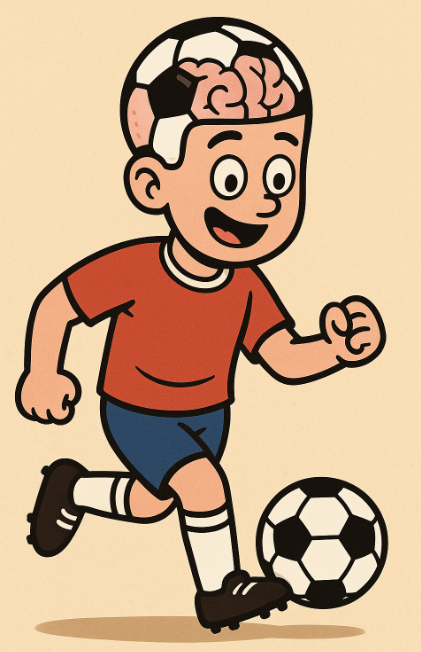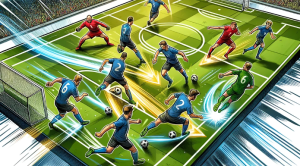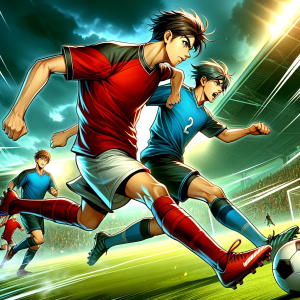
Think Faster, Play Smarter: The Cognitive Edge in Soccer
Ever wonder why some players always seem two steps ahead—finding passes no one else saw, cutting off attacks before they start, or scoring from impossible angles? It’s not just raw talent or fitness. Research shows that elite soccer performance hinges on a powerful mental engine: a rapid cycle of seeing, deciding, and acting under pressure.
A new cognitive model breaks this down into three stages—Situational Assessment, Action Selection & Execution, and Outcome Assessment—each fueled by specific mental skills you can train just like your first touch or finishing.
Stage 1: Seeing the Game Before It Happens
In the first stage, players scan their surroundings, spot patterns, and anticipate what’s coming. Elite players don’t just stare at the ball—they read the field. They watch off-the-ball runs, postures, and space opening up, updating their mental map every second.
Training takeaways:
- Maximize scanning: Practice head turns before receiving the ball; research shows more scanning often leads to better passing decisions.
- Broaden your vision: Include opponents, teammates, and open spaces—not just the ball—in your field of view.
- Anticipate with context: Use knowledge of teammates’ tendencies and opponents’ habits to predict their next move.
Stage 2: Deciding and Doing—Fast
Once the situation is clear, the brain shifts to picking and executing an action—often in less than a second. At the elite level, this process is largely automatic, built on thousands of hours of repetition. But it’s not rigid. Flexible, creative players keep multiple options alive until the last moment, adjusting if conditions change mid-play.
Training takeaways:
- Game-realistic drills: Use small-sided games that force quick choices under pressure.
- Decision variety: Practice multiple solutions for the same scenario (e.g., short pass, long pass, dribble) to keep opponents guessing.
- Balance instinct and strategy: Let automatic reactions run the show for speed, but train conscious adjustments for complex situations.
Stage 3: Learning from Every Play
After an action, the brain evaluates—Did it work? Was it worth the risk?—and adjusts future behavior. Success reinforces certain decisions; failure rewires choices for next time. This is where growth happens, turning experience into expertise.
Training takeaways:
- Post-play reflection: Use video review to analyze decision points, not just technical execution.
- Feedback loops: Get specific, immediate input from coaches or teammates on why a choice worked or failed.
- Confidence calibration: Adjust your risk level based on success rates in similar situations.
Beyond the Ball: Club and Coaching Implications
This model isn’t just for players—it’s a blueprint for clubs and coaches. By breaking the game into cognitive stages, you can:
- Identify strengths and weaknesses in decision-making, not just skills.
- Design position-specific scanning and anticipation drills.
- Develop creativity through open-ended play, not just scripted patterns.
- Integrate mental skills training into regular sessions, improving both speed and quality of choices.
For youth programs, early exposure to scanning habits, pattern recognition, and adaptable decision-making could be as important as ball mastery. For pros, refining these processes might be the difference between good and world-class.
Your Turn to Kick It Off
The science is clear: sharpening your soccer brain can be trained, measured, and improved—just like your body.
- How do you currently train scanning and anticipation in your sessions?
- Have you noticed patterns in your decision-making under pressure?
- If you’re a coach, how do you give feedback that builds both confidence and adaptability?
Share your thoughts in the comments or tag us on social media. Let’s keep the conversation—and the game—moving forward.



